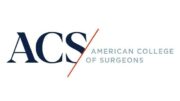Early planning of small-scale surgical improvement projects: the EPoSSI framework
Background
Surgery makes up a significant, and growing, part of healthcare. Variable quality of surgical care is implicated in avoidable deaths, perioperative complications (problems before, during or after surgery), and sub-optimal outcomes.
To address this, improvement efforts are needed. These range from large-scale, well-resourced and funded efforts across many organisations, to small-scale, less well-funded, local efforts, often in a single hospital, department or ward – the impacts of which are mixed and can sometimes be disappointing. This is especially true of local, small-scale quality improvement, which has an important role in supporting better care – but is not always designed or executed as well as it could be.
Publications in peer-reviewed literature tend to focus on large-scale improvement efforts. However, small-scale efforts are as important as they are widespread and typically look to address important clinical issues that frontline surgical teams face.
An evaluation of these small-scale improvement efforts has found that they are often poorly designed and executed. Common problems include a lack of strategic planning, insufficient consideration of contextual or cultural issues, a lack of involvement of stakeholders, poorly articulated project goals, and insufficient reporting on why and how the effort was undertaken, and what the impact was.
To address this problem, we have developed a framework to guide early planning of small-scale improvement efforts in surgery that will help clinicians and others effectively plan, conduct, evaluate and report on them in a way that ensures consistent quality, but is achievable within the limited resources usually available to those leading the efforts. THIS Institute at the University of Cambridge and the American College of Surgeons collaborated on the project, working with the Royal College of Surgeons of England, Royal College of Surgeons of Edinburgh, and Royal College of Surgeons of Ireland.
Approach
The development and evaluation of the framework for small-scale surgical improvement efforts was conducted in a series of phases. First, a literature review was carried out to generate a list of candidate framework components. Then, workshops were held with an expert panel, with members identified through networks of surgeons, healthcare practitioners, patients and others with an interest in healthcare improvement, to carry out a consensus-building exercise to rate the candidate framework components. This involved rating and re-rating the possible items for their importance and feasibility for small-scale improvement efforts, with a view to ensuring that the most appropriate items were included in the framework.
The framework was then developed, based on the results of the surveys. Finally, we asked multiple stakeholders to help us evaluate the framework, using vignettes.
Results
The framework, which is designed to be used by local improvement leaders, focuses on the very early stages of project planning, which are known to be crucial to project success. It covers nine domains:
- Choosing the improvement team
- Detailing the problem
- Developing project aims
- Choosing an intervention
- Planning implementation of the intervention
- Planning project monitoring
- Plan end-of-project decision making
- Launch, monitor, finish
The first framework to focus specifically on the early planning phase of a project, EPoSSI outlines key steps, offers suggestions about what to do and what not to do, helps to guide decisions about whether to proceed with projects, and supports preparations for those selected for delivery.
Funding and ethics
This study is funded by The Healthcare Improvement Studies Institute (THIS Institute), an independent research institute co-created by the University of Cambridge and The Health Foundation (an independent charity committed to bringing about better health and health care for people in the UK).
The project investigator (Clifford Ko) is funded by the American College of Surgeons, an organisation in the United States committed to high-quality surgical care. The American College of Surgeons has more than 84,000 members, with fellows from the US and Canada, international fellows, and affiliate members representing clinical staff and allied health professionals.
This study has been reviewed by the University of Cambridge Psychology Research Ethics Committee.







